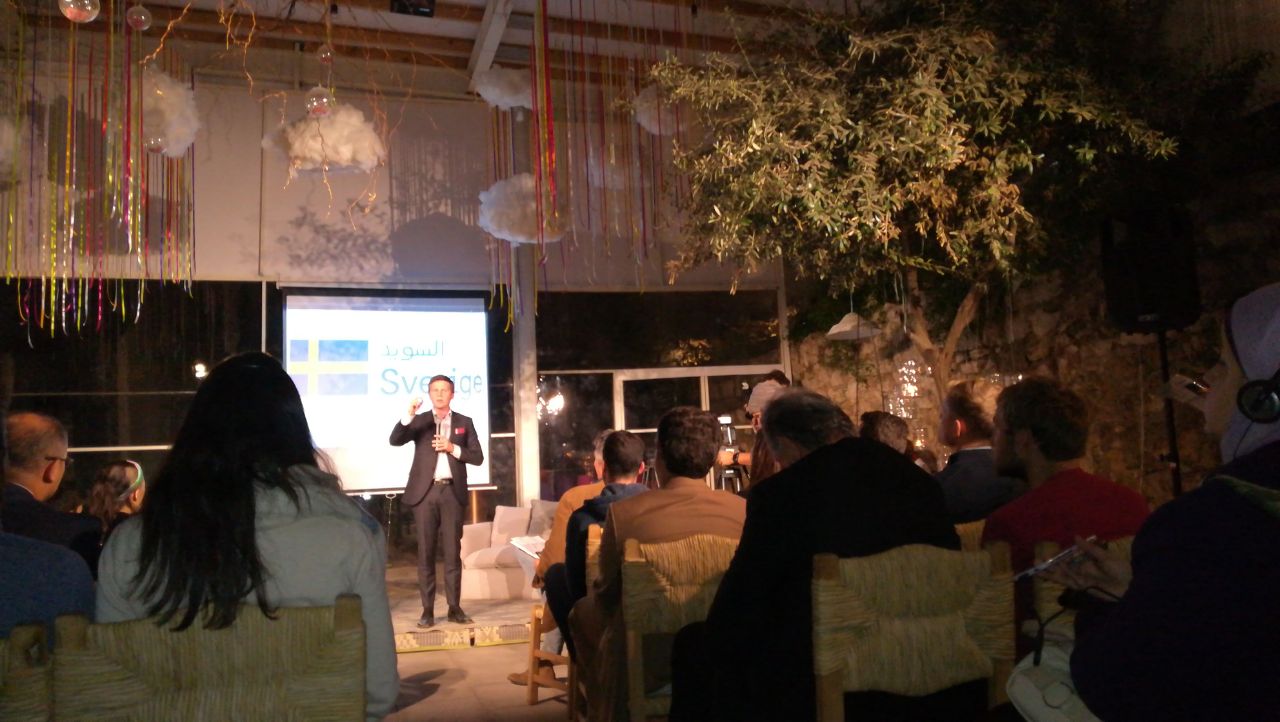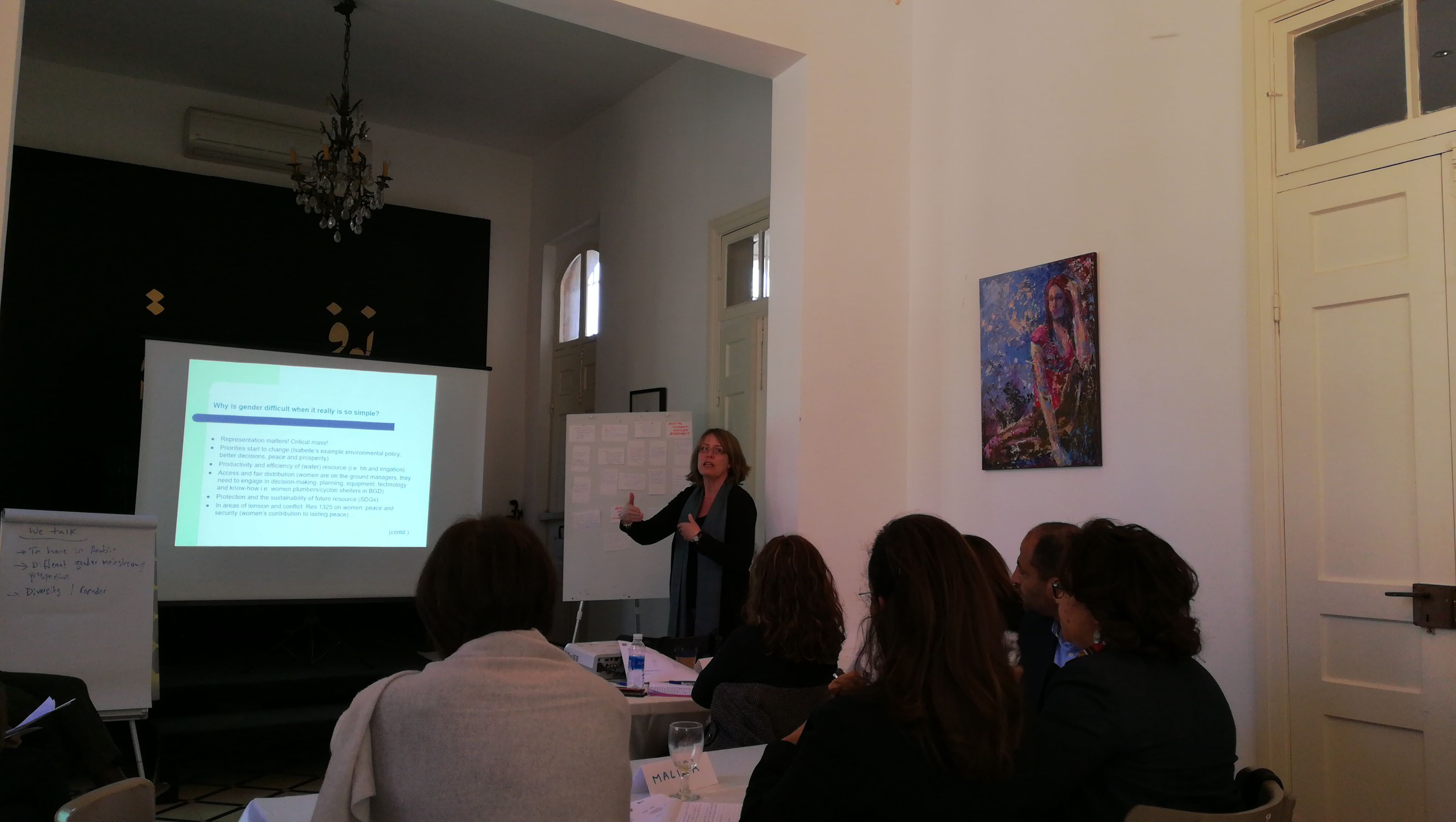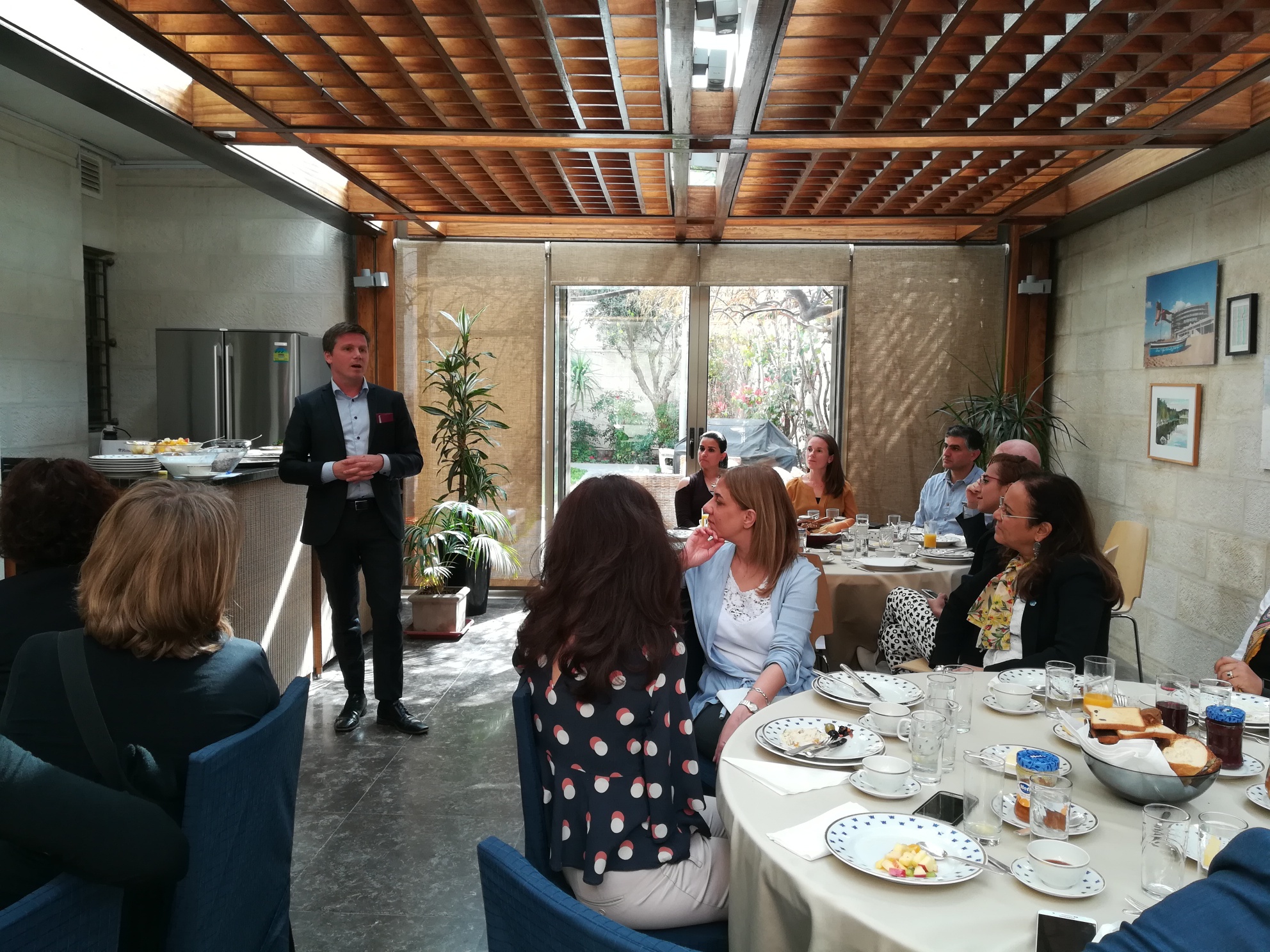Ways to mainstream gender equality and women’s empowerment in projects, was the theme of a Workshop organised by Sida in Amman, Jordan, on 6-8 March 2018.
The workshop brought together 20 representatives of Sida’s regional partners in an alternative set-up that involved events held in different locations, with the aim to create a joint understanding of current gender issues in the Middle East and North Africa’s natural resources sector and an enhanced comprehension of Sida’s view, tools and methods for gender equality, including the Gender Toolbox.
A public event, a full-day workshop and a breakfast meeting formed part of this organisation and resulted in the open sharing of experiences and lessons learnt, allowing at the same time for some peer-to-peer learning, including with the Sida representatives.
The Sham el Balad community centre hosted the beginning of the workshop on the evening of March 6th, through the public WE (Water & Energy) Talk event jointly organised by Sida, BORDA and MINARET. Four speakers shared their reflections on the issue of gender in the water and energy sector, responding to the question of why gender can be understood as an approach rather than an activity. Women leading change, the role of gender equality in supporting more stable families and a better world, the issue of self-imposed limitations and the need to adopt a new definition of leadership were among the elements raised by the speakers. The discussion that followed, touched upon the issue of power-sharing, that gender concerns both men and women and the need for holistic empowerment for both sexes.

The following day (March 7th), included a day-long workshop at the NOFA Creative Space on the overall theme of Exchanging the Experience with Each Other. The workshop developed through four consecutive sessions, including Sida’s reflections from the 2013 MENA gender review and the 2016 gender portfolio review; an overview of facts on gender equality in the MENA and ways to apply gender mainstreaming; and a series of group work on the challenges/opportunities for gender mainstreaming within existing projects and the way forward.
If the understanding on gender is simple and straightforward, then why is gender mainstreaming so difficult? asks Esse Nilsson, Senior Programme Manager, Unit for Mena, Sida. The participants debated on the value of representation and of having a critical mass in place for triggering change, while stressing that priorities in policy agendas have started changing benefitting from increased productivity and efficiency of water resources and due attention to access and fair distribution for all. There was agreement that gender equality requires social change, and thus a recognition that the time needed to make such change is longer than any project’s life. Continuity of effort is crucial in this context as well as the partners’ dedication and commitment. Moreover, and through specific examples, the participants recognised that assumptions made are often not nuanced enough, and thus more awareness and attention are needed on coupling assumptions with data/evidence. The value of sex-disaggregated data was particularly accentuated in this respect.
The workshop concluded on March 8th, the International Women’s Day, with a breakfast meeting and a plenary discussion at the Swedish Ambassador’s Residence in Amman. H.E. Mr. Erik Ullenhag shared his reflections on why he is a feminist, explaining that a feminist policy essentially helps girls fulfil their dreams. He also conveyed the rationale on why gender equality supports a better world and more stable families and how important it is to support women to be mothers without jeopardising their employment opportunities and prospects.

The meeting and the workshop concluded with a plenary discussion on immediate next steps and partners’ suggestions for Sida’s consideration. Among the ideas put forth were the maintenance of a virtual interface among the group (perhaps also through a dedicated facebook page) for sharing resources, information, etc. and the institutionalisation of annual gender-related meetings (possibly in Amman), while also arranging for face-to-face meetings on the side of regional events organised by the partners. Importantly, there was widespread willingness from all partners to maintain a close link and explore further synergies and collaboration prospects.
